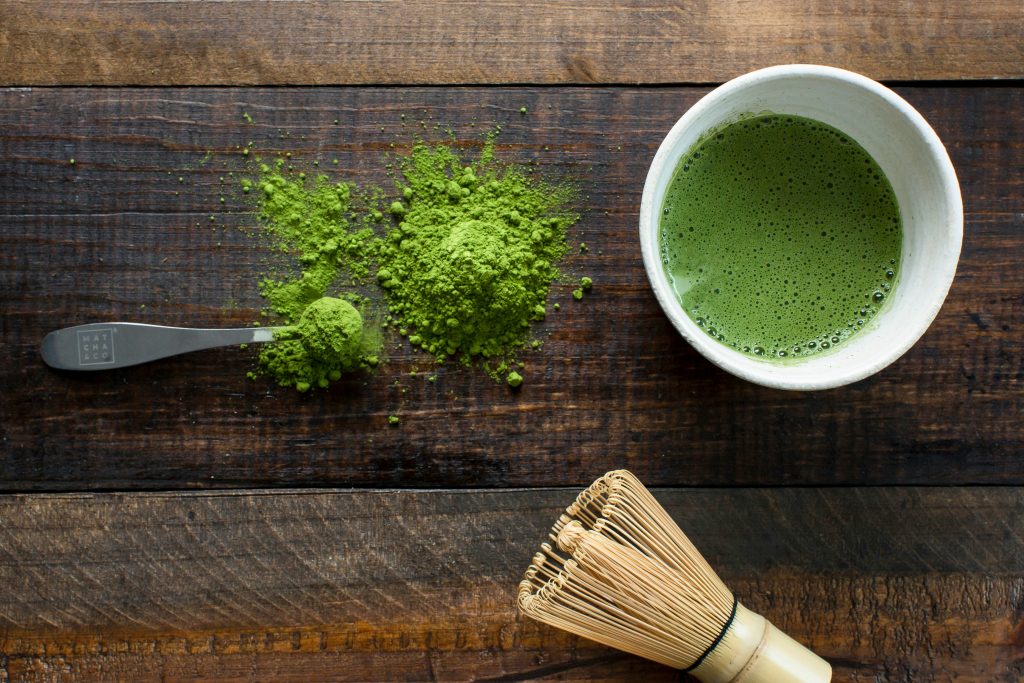The Comprehensive Guide to Understanding Green Tea: Consumption, Health Benefits, and Precautionary Measures
Dive into the world of green tea, a remarkable beverage woven into countless cultures for centuries. This guide will explore everything you need to know about green tea, from its health benefits to possible side effects, and how to safely consume this fantastic drink.

Photo by Massimo Rinaldi on Unsplash
Why Should You Drink Green Tea?
Green tea is more than just a calming drink. It is the second most consumed beverage in the world, making it a highly popular consumed beverage globally.
When consumed in moderation, it may provide various health benefits owing to the unique compounds it contains. Throughout history, people have chosen to drink tea not only for its taste but also for its cultural and traditional significance.
Green tea originates from the Camellia sinensis bush, a species of tea plants that is cultivated in many regions for its distinctive qualities.
The Science-Backed Health Benefits of Green Tea
Green tea is widely recognized for its possible health benefits, supported by scientific research. Various studies have used green tea extract consumption and found that green tea contains antioxidants like tea catechins, notably green tea catechins, which may help mitigate the risk of chronic diseases. Green tea consumption is associated with a reduced risk of cardiovascular disease and cardiovascular diseases, including conditions such as stroke and heart attack. From enhancing cardiovascular health to aiding weight loss by improving body mass index and promoting fat burning, the health benefits of green tea are enormous. Green tea polyphenol and other natural polyphenols are key tea components responsible for these antioxidant effects.
Comparison: Green Tea Vs. Black Tea
Green tea and black tea come from similar tea leaves, but the different types of green teas, each with unique processing methods, result in a wide range of flavors and characteristics. Green tea is made from unfermented leaves and contains more antioxidants compared to black tea, which is produced when green tea extracts are fully fermented. The variation in tea components, such as catechins and polyphenols, between green and black tea contributes to their distinct health effects.
Exploring Unique Compounds in Green Tea
Green tea contains several key tea components that contribute to its health benefits. Green tea polyphenols, like tea catechins, are potent antioxidants, while caffeine in green tea enhances alertness and cognition. Additionally, green tea contains amino acids, including theanine, glutamic acid, and tryptophan, which contribute to its unique flavor and promote a state of calm awareness, as well as offering additional health benefits. For those interested in exploring the benefits of other teas, white tea also offers impressive health advantages.
These tea components, such as polyphenols, caffeine, and amino acids, work together to provide a range of health benefits.
How Much Green Tea Should You Drink in a Day?

Photo by Matcha & CO on Unsplash
Optimal green tea intake varies according to individual health, lifestyle, and tolerance to caffeine. However, evidence suggests that several cups of green tea per day can provide significant benefits without adverse effects.
When considering how much caffeine is in green tea, it’s important to note that a typical cup contains between 20-45 mg of caffeine, depending on the preparation method. This caffeine content can influence how much green tea is optimal for daily consumption, especially for those sensitive to caffeine.
Optimal Intake for Vital Health Effects of Drinking Green Tea
Research indicates that the beneficial effects of drinking green tea tend to appear with a consumption of three to five cups per day. This level of green tea intake correlates closely with improvements in heart health, cognitive function, and metabolic health.
Understanding Daily Green Tea Consumption Limits
While the health benefits of green tea are impressive, exceeding the daily consumption limit can introduce risks. Excessive green tea can lead to caffeine-induced side effects which may affect specific individuals.
Recognizing the Risks of Drinking Too Much Green Tea
Drinking too much green tea, especially in a short time, can lead to caffeine-related problems, like headaches, insomnia, and irregular heartbeat. Consuming green tea responsibly ensures you enjoy its benefits without adverse effects.
What are the Side Effects of Drinking Green Tea?

Photo by Content Pixie on Unsplash
While green tea is generally safe for consumption, some individuals may experience green tea side effects due to green tea’s high caffeine content or specific health conditions.
Additionally, green tea can affect iron absorption, which may be a concern for individuals at risk of iron deficiency.
Decoding the Negative Effects of Excessive Green Tea Consumption
The negative effects of excessive green tea consumption mainly revolve around its caffeine content. Generally, caffeine intake, of five or more cups of green tea daily can cause various issues, including jitteriness, insomnia, upset stomach, and even increased heart rate.
Identifying Potential Side Effects of Green Tea
Some of the potential side effects of green tea include stomach discomfort, constipation, and a decreased absorption of iron from food. These can be mitigated by consuming green tea in moderate amounts and not taking green tea on an empty stomach.
How Green Tea is Linked with High Blood Pressure
Green tea has a dual action on both blood sugar and pressure. While moderate green tea intake can help to lower blood pressure, excessive green tea or consumption in a compressed timespan can cause a temporary spike in blood pressure due to caffeine.
How to Safely Consume Green Tea?

Photo by Timothy Newman on Unsplash
Maximizing the benefits of green tea while minimizing its side effects requires an understanding of how to consume it safely and appropriately.
Green tea is also available as dietary supplements, such as extracts and capsules, which offer an alternative to traditional brewing.
Learning About the Precautions in Consuming Green Tea
Avoid drinking green tea on an empty stomach to reduce the risk of stomach discomfort and ensure that it doesn’t interrupt your sleep by consuming it at least several hours before sleeping.
Evaluating the Interactions of Green Tea with Other Substances
Green tea may interact with certain drugs, precipitating adverse reactions. For instance, green tea might reduce the effectiveness of blood thinners and certain heart medications. Therefore, consulting a healthcare professional before starting green tea is advisable.
Understanding How Green Tea Can Affect Your Health
Though green tea has numerous health benefits, its effects may vary from person to person, based on individual body chemistry, tolerance, and existing health conditions.Where many consider a cup of green tea as a daily wellness habit, others may reap the most benefits by consuming it several times a day.
What are the Benefits of Drinking Green Tea?
Drinking green tea goes beyond its rich, comforting taste. When consumed in suitable amounts, green tea may offer numerous health benefits, extending from physical wellness to mental sharpness.
Unraveling the Health Benefits of Green Tea Consumption
Green tea may help improve brain function, reduce bad cholesterol, lower risk of stroke, and assist in weight loss. Green tea protects brain and bone health, helping to guard against neurodegenerative diseases and osteoporosis. Moreover, some studies found that green tea may also have the potential to reduce the risk of certain types of breast cancer.
Green tea catechins can help regulate blood glucose and improve insulin sensitivity, thereby supporting healthy blood sugar levels and potentially reducing the risk of developing type 2 diabetes. Green tea also protects oral health by fighting oral bacteria that can lead to dental issues.
The antioxidant effects of green tea catechins help neutralize reactive oxygen species, reducing oxidative stress and protecting cells from damage. Additionally, green tea polyphenols demonstrate anti-inflammatory effects, which contribute to cardiovascular health, cancer prevention, and immune system support.
How Green Tea Can Enhance Your Health
From boosting metabolic health to promoting longevity, the health benefits of green tea abound. With its rich blend of vital nutrients, green tea can have positive effects on nearly every system in the body.
Take a Deep Dive into the Effects of Green Tea
Green tea may have profound effects on overall wellbeing. Regular consumption of green tea may boost brain health, enhance metabolism, improve skin health, and even aid in weight loss. Furthermore, it’s recognized for its potential antioxidant, anti-inflammatory, and anticarcinogenic properties.
###
How to Incorporate Green Tea into Your Diet
Incorporating green tea into your daily routine is a simple and enjoyable way to boost your overall wellness. Whether you’re new to drinking green tea or already a fan, there are plenty of creative and convenient ways to enjoy its potential health benefits.
One of the easiest ways to start is by swapping out one of your regular beverages for a cup of green tea. You can brew your own using high-quality green tea leaves, or opt for the convenience of tea bags. If you’re looking for a more concentrated option, green tea extracts and green tea supplements are available and can be added to smoothies, yogurt, or even your morning oatmeal for an extra antioxidant kick.
For those who enjoy experimenting in the kitchen, try adding green tea leaves to your favorite recipes. Green tea can add a unique flavor to stir-fries, soups, or even as a marinade for proteins. Japanese green tea varieties, such as matcha powder, are especially versatile and can be used in both sweet and savory dishes.
Making green tea a part of your daily routine can be as simple as enjoying a cup in the morning to help boost your metabolism and energy, or sipping it in the afternoon to support focus and brain function. Drinking green tea regularly may also support weight loss efforts and contribute to a healthy diet.
Q: What is the green tea extract and how is it used?
A: Green tea extract is a form of green tea, one that has been concentrated so that it can have more robust health benefits or be used in other products. The extract comes from the tea leaves of the Camellia Sinensis plant, the plant that has been used to produce various types of tea including green, white, and black teas. It consists of several components, including antioxidants, which are beneficial to health.
### ###
Q: Are there any potential green tea side effects to be aware of?
A: While green tea can offer various health benefits, it may also lead to some side effects when consumed in excess. These may include headaches, dizziness, and digestive issues. The caffeine in green tea might cause sleep disorders. Also, some studies suggest that daily green tea consumption and the risk of kidney stones might be connected, so people with this health issue should consult with their doctors.
### ###
Q: How much amount of green tea is safe to consume per day?
A: Many professionals suggest that 2-3 cups per day is an ideal amount of green tea for a healthy person. This is not a strict standard, as factors such as age, health status, and tolerance to caffeine may impact the optimal amount each person should have. Consult with a healthcare provider for personalized advice.
### ###
Q: Are tea bags as beneficial as green tea leaves?
A: Both tea bags and loose green tea leaves have their own benefits. Tea bags are convenient and easy to use, while loose green tea drinkers and leaves often provide a fresher taste and have a stronger aroma. However, the most important part is the quality of the tea itself – high-quality tea bags may provide more benefits than low-quality loose leaves.
### ###
Q: Should people who drink a lot avoid green tea?
A: People who drink a large amount of alcohol should consult a healthcare provider before significantly increasing their green tea consumption. Excessive consumption of green tea can potentially affect liver health, which could be of concern for those with existing liver conditions caused by alcohol.
### ###
Q: How is the caffeine content in green tea compared to other drinks like coffee?
A: Green tea contains less caffeine than coffee. Typically a cup of coffee may contain around 95mg of caffeine, whereas a cup of green tea contains approximately 20-45mg. Therefore, for those people who are sensitive to caffeine, switching from coffee to green tea every day, could be a beneficial choice.
### ###
Q: Can green tea supplements cause side effects?
A: Yes, taking green tea extract supplements can potentially cause side effects. Specifically, due to their concentrated nature, they present a higher risk of side effects like dizziness, heartburn, and even more severe issues like liver problems. Always consult a healthcare provider before starting any new green tea extract supplement regimen.
### ###
Q: How do the effects of green tea extract compare with drinking green tea?
A: The active ingredients in green tea extract are the same as those in green tea, but provided in a concentrated form. This means that some potential health benefits of drinking tea, such as weight loss or improved cholesterol levels, may be more pronounced with green tea extract. However, the extract might also increase the risk of side effects, particularly when misused.
### ###
Q: Can green tea have interactions with any medications?
A: Yes, green tea can potentially interact with certain medications and other substances, increasing or decreasing their effects. Notably, drugs for heart conditions, stimulant drugs, and some antibiotics may react with green tea. If you’re on medication, it’s always best to consult with your healthcare provider before ramping up your green tea intake.
### ###
Q: Does decaffeinated green tea have the same benefits as regular green tea?
A: Decaffeinated green tea may contain slightly lower levels of antioxidants compared to regular green tea, due to the process of removing caffeine. However, it still offers a significant amount of health benefits green and black tea could be a good option for those wishing to limit their caffeine consumption.
### “`

